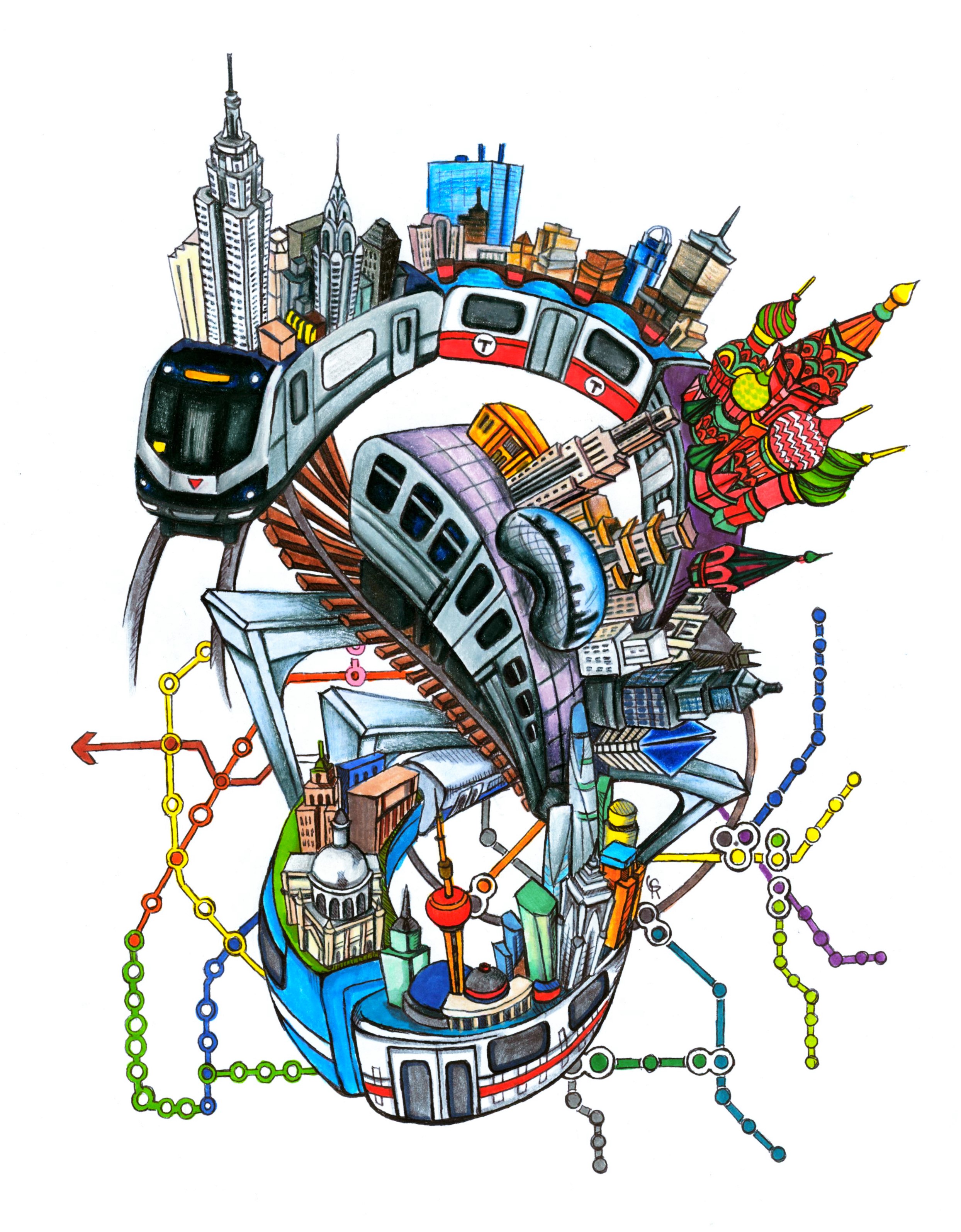
“I’m not attracted to the Singaporean accent,” she said. “No offence.”
I asked her to elaborate.
“I can’t explain it. It just doesn’t turn me on.”
My accent is a love song to home. It is the stories my father told me during long car rides to Malaysia. It is my sister reading from a play she wrote about a girl who stutters. It is the handsome voice of the first boy I liked gushing about whales; it is my classmates chattering raucously beside a koi pond. It is the overhead bridge with pink bougainvilleas that I crossed at dawn on the walk to school. It is the din of a hawker food center, wet and alive, the site of family breakfasts of century egg congee and Indian prata.
I’ve always considered myself a confident person, secure in my sense of self. Yet, a week ago, after a close friend expressed her aversion to my accent, I sat in my common room, stunned. Her assessment was an indictment, a hammer’s blow to my self-esteem. She had reduced my personhood to one facet of my speech; my accent was a deal-breaker. Ouch.
“Try not to come back with an American accent,” my dad said before I left for Yale. His request irked me. Why couldn’t I transform? Why couldn’t I radically self-define? Why couldn’t I be as Singaporean or as American as I wished to be?
One year into my time abroad, I still retain the accent of my birthland. There is geography here. There is memory here. In my inflections, intonations, pauses and stresses — here is that elusive self we all pine for. Here is the temper of my heart, the timbre of my spirit.
An accent carries import. My accent is fleshy and meaty, a brew of Singapore’s four official languages. I chew on its English hard-toffee, on its Mandarin soya, on its Malay sambal twang, on its Tamil cumin. Sometimes it gets knotted around my tongue, language tangled in a fishnet. Sometimes, it makes a rough landing: What? Americans ask. What is this foreign thing?
Coming to America, I watch my international friends’ accents morph. An American accent hatches from their Singaporean one, a baby chick from an egg. Their staccato patois smoothens into a Western lilt. Now, fledgling wings. Now, flight. Suddenly, they become indistinguishable from the faces I see on Grey’s Anatomy, from the voices in a Presidential Debate. You change an accent to be understood, they say. After all, what is an accent but a summer dress you put away in winter? An accent can be shed like snakeskin. Yet, as the architecture of our voices, our accents express our childhoods and homelands. An accent is a reflection of where home is and who we are.
When I hear other Singaporeans disguising their accents, I’m discomforted. Is it that easy to alter your speech? If you are able to molt and become again — is there anything constant to hold onto?
Last year, during my first fall break, I watched leaves change in Boston. As I explored Beacon Hill, traversing brick sidewalks and gaslit streets, a familiar accent caught wind.
To hear a Singaporean accent in America is like seeing a rose bloom in a desert. All thirst, you grow a hump on your back, you grow thorns on your skin to cope. And then — you hear it, an old song. You crawl forward on all fours and sip on the lake of their speech: yes, yes. A favorite ballad. A deep part of yourself awakens. This is what I’ve been missing.
In sharing dating preferences, Yale friends have said, “I’m only attracted to white men”, or “I’m not attracted to [people of a particular race].” On one hand, we can’t control who makes us blush. On the other, such preferences are problematic.
I’m just being honest, they say, writing a verbal checklist of “ideal date characteristics” for an upcoming college screw. Athletic, good-looking, smart, oh — and ideally not Asian, Hispanic, or black; French is O.K., British is a perk, but not too international.
After all, this is #notracist, it’s just #honest, #real, #candid, #icantcontrolmyvagina, #mydickhasamindofitsown. Ah, the politics of attraction.
As intelligent, thinking creatures, surely our primal impulses don’t hold us prisoner. There has to be merit in investigating our attractions, in questioning our bigotries and in challenging our prejudices. As moral beings, to eschew sentiments that entrench racial-ethnic hierarchies and to be open-minded to how people may surprise us is a thing of virtue, hope and aspiration.
And me? I’m a wild kitten, purring Singlish in your ear. I’m not shy. I’ll barbecue satay and breathe its smoke down your throat. I’ll French-kiss you and lodge a creole crumble on your tongue. That don’t make you wet? That don’t get you hard? That’s okay — you can always jerk off to the sound of your own voice.







